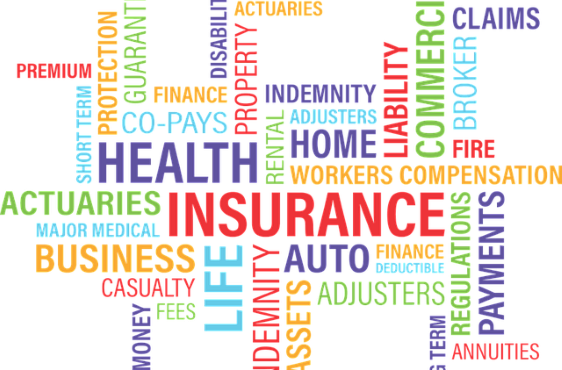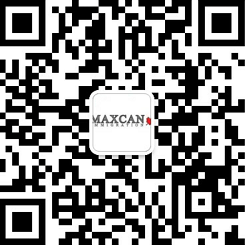

Returning Assets to Canada from Hong Kong
Posted on 15/06/2020
Are you living in Hong Kong?
It is clear that Hong Kong’s special status is likely to be ended soon under the forceful ways. That’s leaving a lot of Hong Kong residents who also have Canadian citizenship wondering about returning to Canada.
But moving back to Canada is not always a simple affair and is less so during a pandemic. Let’s review the rules that apply if and when you decide that it’s time to move house and once more settle in Canada. One of the many issues facing you is what goods you can bring back duty-free to Canada, when you have been living (or travelling abroad).
There are several groups of people among Hong Kong residents who might be considering moving back to Canada:
Former Residents who are Canadian citizens:
Whether you are a dual citizen (see below) or simply a Canadian who has lived for at least 1 year in Hong Kong or anywhere else outside of Canada, you are considered what is called a Former Resident.
In this case you will have to prepare a list of those goods (personal effects) you wish to bring back with you to Canada in order to ensure they are let in duty-free.
- You should make 2 copies of the list and each copy should be divided into 2 sections:
- Goods you are bringing with you that will arrive at the POE (port of entry) at the same time as you do
- Goods to follow which are those that will arrive at a later date after your arrival. Please note that If you decide to have some of your goods sent after you have returned to Canada and they were not listed on your original list of goods, then they will be subject to taxes and duties.
- For your Goods to Follow to be released to you when they arrive, you must have your original copy of the Form B4 you received when you arrived back in Canada at your Port of Entry.
- If you don’t make up a list, you will have to create a list at your Port of Entry (POE) before any further processing of your arrival back in Canada can proceed. Be smart. Do the list while still in Hong Kong.
- The following list of goods can be imported duty-free by former residents:
- Clothing and linen
- Furniture and furnishings
- Appliances
- Silverware
- Jewellery
Please describe each item of jewellery, preferably using the wording of any insurance policy covering them or obtaining an appraisal from a professional gemologist or jeweller. Include photographs of each piece signed and dated by the gemologist or jeweller.
-
- Antiques
- Family Heirlooms
- Private coin, stamp, or art collections
- Personal computers
- Books
- Musical Instruments
- Hobby tools and other hobby items
- Personal vehicles
- Pleasure boats and trailers to carry them
- Mobile trailers (no more than 2.6 metres wide)
- Private aircraft
- Tool sheds or garages unattached to any building
- Wedding gifts
You must have got married within 3 months of moving to Canada or will be married within 3 months of moving to Canada. Any wedding gifts brought in must have been owned and possessed before being shipped to Canada.
-
- Alcohol and Tobacco products face the same duty-free restrictions as those visiting Canada or coming to settle for the first time.
- Goods with a value greater than $10,000 will be charged standard duties on any portion of their value greater than $10,000. For example, an antique worth $15,000 will be charged duties on the final $5,000 of its value.
- Please ensure that you arrive in Canada at roughly the same date as the goods that are listed as accompanying you (those that are not on the goods-to-follow section of your list).
- Goods that are not claimed when they arrive in Canada are placed in what is called a Sufferance Warehouse for a period of 40 days. After 40 days customs authorities issue a Form E44 Notice – Unclaimed Goods. The goods must be claimed within 30 days of the Form E44’s date of issue, after which they are subject to disposal and may NOT be claimed by the owner.
- To be granted an extension on goods in a sufferance warehouse, the owner of the goods must apply for one in Canada at the local CBSA office nearest your port of entry. Extensions can be granted for a period of up to 4 years.
When you arrive in Canada, a Border Services officer will use your list to prepare what is called a Form B4 Personal Effects Accounting Document (Settler, Former Resident, Seasonal Resident, Beneficiary). Please note that you are allowed to download and complete a Form B4 in advance of arriving in Canada to help speed up the process.
The following goods are inadmissible for entry to Canada as personal effects:
- Goods for use in a business such as:
- office equipment and furniture,
- dental chairs,
- welding equipment,
- metal and woodworking machines,
- vehicles and trailers for commercial use,
- Livestock
- Machinery and equipment for use on a farm
- Housing, large trailers, structures that require a highway permit and special escort to be transported by road
- Company-owned and leased vehicles
- Good shipped to Canada before the owner arrives, unless they are placed in bonded storage and have had 6 months of possession and/or use. Goods may remain in bonded storage for up to 4 years.
If the Chinese government puts in place currency restrictions on the HK dollar that hinder the transfer of funds back to Canada, you may have the option of buying goods in Hong Kong in your restricted local currency and shipping them duty-free to Canada. This is a provision in Canada’s customs rules and regulations. So, if you are fearful of perhaps the HK dollar losing its peg, one option you have is to purchase goods in Hong Kong that you will need when setting up your home back in Canada and try to import them duty-free into Canada. Actual restrictions will have to be put on the HK Dollar for this scheme to work, however.
- You will have to convince agents of the Canada Border Agency (CBSA) that, in the case of the HK dollar losing its peg and perhaps other restrictions being put in place, these constitute restrictions on the transfer of capital by residents of Hong Kong.
- If you are successful at establishing that the HK dollar is now a blocked currency, then you have 3 years to import those goods you purchased with your HK dollars into Canada.
- The customs officers will prepare a Form BSF715 Casual Goods Accounting Document in order to list the goods you import to Canada under this provision.
Former Residents who are Dual Citizens
All of the above applies to you as far as shipping personal belongings back to Canada. However, you must also ensure your Canadian passport is still valid. If you find you have to travel back to Canada on your Hong Kong SAR-issued passport because your Canadian passport has expired and you haven’t had time to renew it given COVID-19 delays, you may have to apply for a special authorization to board your flight to Canada. To obtain a special authorization to board your flight, you must:
- Have a flight leaving to Canada in less than 10 days
- Not have a valid Canadian passport
- Have a valid passport from a visa-exempt country (Hong Kong SAR passports qualify)
- Have at least one of the following be true:
- Have previously received a Canadian certificate of Citizenship, OR
- Have held a Canadian passport in the past, OR
- Were granted Canadian citizenship after having Permanent Resident status
- If you are granted special authorization to board your flight to Canada, your Canadian citizenship will be verified online and you will have 4 days from the date you choose on your application for special authorization to travel to Canada. If you aren’t able to travel by 4 days after that date, you will have to reapply for special authorization.
Residents of Hong Kong who are neither dual citizens nor citizens.
In this case, you either have a permanent resident visa or are trying to travel to Canada on a temporary resident visa involving a work or study permit. Even if you are planning to try and permanently settle in Canada, it is best that you sell your personal possessions in Hong Kong or leave them with someone as you will likely not be able to ship them to Canada, and trying to bring them to Canada may very well complicate your attempts to immigrate.
You should only bring what regular travelers or tourists bring, like clothes and small personal belongings that fit in typical luggage used with air travel.
Remember as well, that COVID-19 restrictions apply in your case and you must show essential or what is called non-discretionary reasons for travelling to Canada. These include:
- Work and study
- Critical infrastructure support
- Economic services and supply chains
- Shopping for essential goods like health products or medication
- Health, medical care, safety and security
That means that study or work permits are likely the best way to try and arrive in Canada, if you wish to then apply for permanent residence.
Posted in News Tips and tagged Return to Canada




